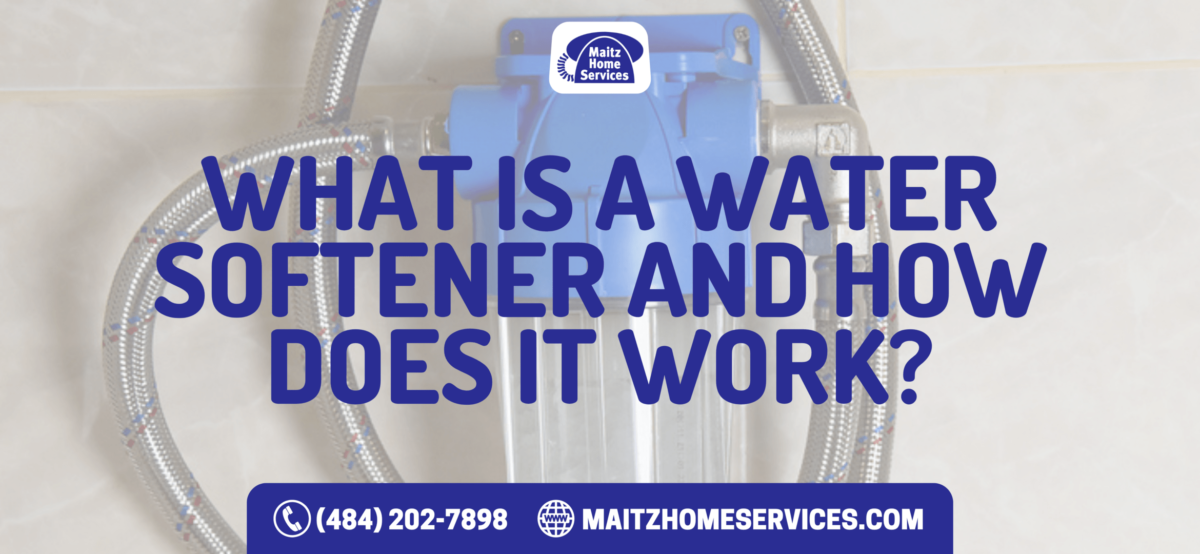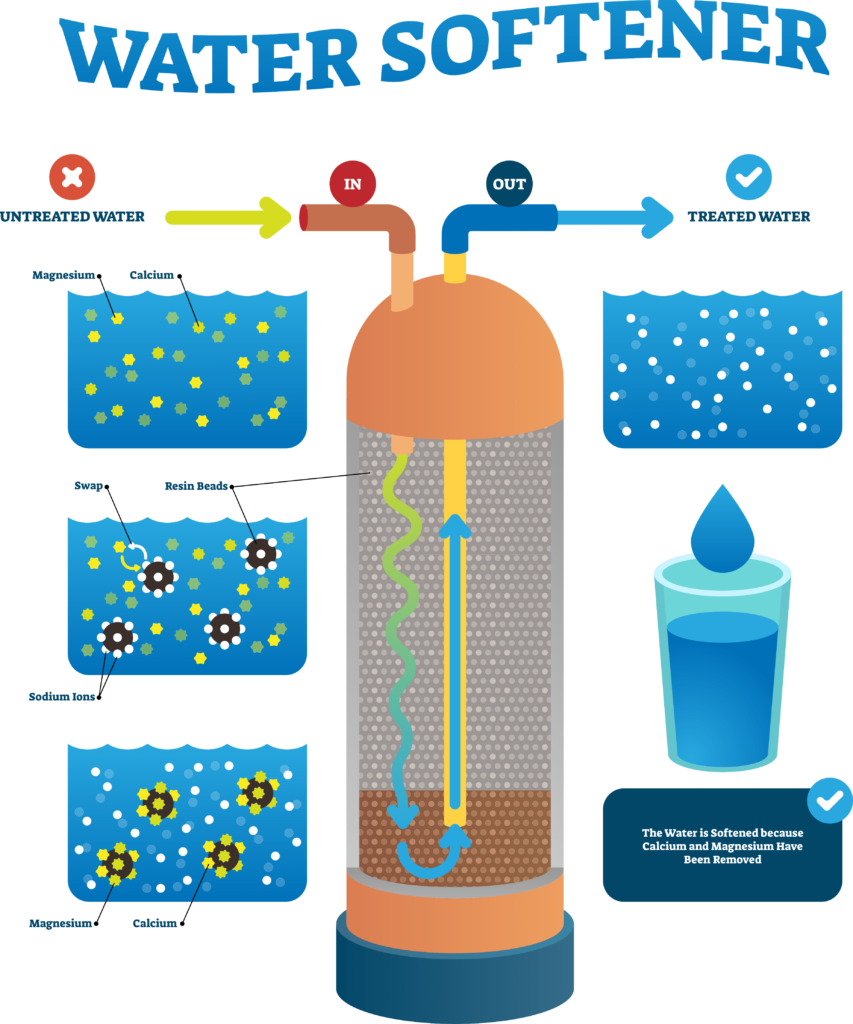
An estimated 85% of U.S. homes have hard water, and many of those homes don’t treat it. If your home falls into this statistic, it’s time to invest in a water softener. Keep reading to learn about what this system is, how it works, and why you need one.
Hard Water vs. Soft Water
So what are the differences between hard and soft water, and why do they matter?
Hard Water
What makes hard water hard are harsh minerals that can damage everything from skin and hair to clothes and dishes. Calcium and magnesium are the two most common minerals in household water supplies. The mineral content of water is measured in GPG (grains per gallon).
Mineral buildup in your water can cause dry, frizzy, and damaged hair along with dry, itchy skin. Mineral buildup can also clog faucets, drains, shower heads, and appliances—decreasing their efficiency and longevity.
Soft water
- Lower mineral content (measured in GPG: grains per gallon)
- Increases appliance efficiency and longevity
Unlike hard water, soft water contains little to no harsh minerals. That means this higher-quality water doesn’t leave pesky water spots or residue on your skin, hair, clothes, or dishes. It also increases appliance efficiency—which reduces your monthly water and energy bills—and longevity—which reduces your likelihood of needing plumbing repairs or replacements.
What Is a Water Softener?
A water softener is a household filtration system that removes excess mineral content from your water supply. It can easily be added to your current plumbing system, and you only need one for your home’s entire water supply. Be sure to install the water softener at the source of your water supply for optimal results. Water softeners have a minimum lifespan of 15 years. Many can last longer when they’re taken care of properly.
How Does a Water Softener Work?

Water softeners initiate an ion exchange process. Here are the three steps the filtration system follows.
- Hard water enters the water tank and passes through negatively charged resin beads.
- The resin beads attract positively charged mineral ions, effectively removing them from the tank’s water supply.
- Once the resin beads reach their capacity for mineral content, they release a saltwater solution that expels the mineral ions from the system. This is known as its regeneration process.
The sodium ions contained in the saltwater solution are what give the water its signature “soft” feel.
Why Is a Water Softener Important?
A water softener plays a key role in the household water filtration process. Here are the system’s primary benefits:
- Provides higher quality water that results in a better cleaning for dishes, clothes, and other household items
- Produces water that is gentler on hair and skin
- Increases the efficiency of your household appliances, which lowers your monthly water and energy bills
- Increases the longevity of your appliances and plumbing system, meaning they’ll require less maintenance, fewer repairs, and fewer replacements over time
Call Maitz Home Services for a Water Softener Installation
Does water quality prevent you from having spot-free dishes, soft hair, and smooth skin? Treat your home’s water problem at the source with a water softener. With decades of experience providing Allentown, Pennsylvania, residents with expert plumbing services, Maitz Home Services knows how to get the job done right. Schedule an installation today.

